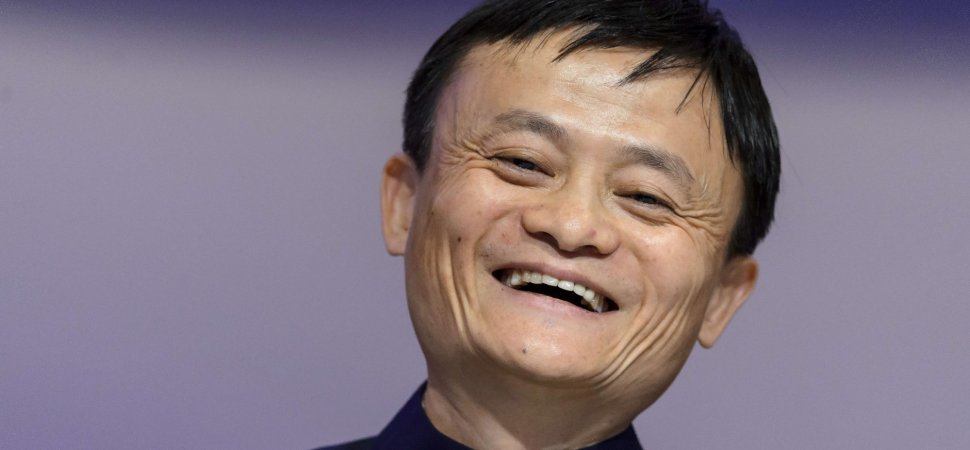World-renowned neurosurgeon James Doty, author of the New York Times best seller Into the Magic Shop, has a compelling story that credits mindfulness and visualization as important first steps that turned a life of poverty into one of success and wealth.
Now director of the Center for Compassion and Altruism Research and Education (CCARE) at Stanford University, Doty’s research and other scientific evidence have revealed a clear antidote for the epidemic of loneliness, depression, addiction, and anxiety so prevalent in this country: Compassion.
Here’s Doty on his Huffington Post column:
“Compassion is the recognition of another’s suffering and a desire to alleviate that suffering. Often brushed off as a hippy dippy religious term irrelevant in modern society, rigorous empirical data supports the view of all major world religions: compassion is good.”
You can start with compassion being good for your health. As my Inc. colleague Peter Economy recently wrote, research validates that a compassionate lifestyle can help you live longer. “In order to benefit from better mental health, increased physical health, and a faster recovery from disease, we must connect with others in a meaningful way,” writes Economy.
Sure, compassion still has a long way to go and a lot of obstacles to clear to be taken serious in the bottom-line, sink-or-swim, dog-eat-dog world of business. But the strength of compassion is manifested in what Doty calls “recognizing another’s humanity, recognizing another’s potential, and making a simple effort to be there for them.”
Jack Ma, The Dalai Lama, and Jeff Weiner All Agree
That’s in line with the increasingly popular and powerful practice of Servant Leadership, which is defined as “a philosophy and set of practices that enriches the lives of individuals, builds better organizations and ultimately creates a more just and caring world.”
Servant-leaders are compassionate leaders who display love — the action-based type — that leads to results. It’s that kind of “love quotient” or LQ that appears to be new measure of success. So far, self-made billionaire Jack Ma, founder of Alibaba, appears to be the poster boy for LQ. He has been on the campaign trail to hail LQ superior to both EQ (emotional intelligence) and IQ.
According to Ma’s love quotient model, you measure success not by your worth (or company’s worth) but by the compassionate modus operandi of how many problems you solved and how many people you helped in the world.
Ma says, “You can become a money machine, but what’s the use of that? If you’re not contributing to the rest of the world, there’s no LQ…your love is you have to be principled. That’s the bottom line.”
Not surprising, this compassionate edge has other big fans and supporters, including His Holiness the Dalai Lama, who is a benefactor of Dr. Doty’s work at CCARE. Take note of his clever remark on compassion:
“If we say, ‘oh, the practice of compassion is something holy,’ nobody will listen. If we say, ‘warm-heartedness really reduces your blood pressure, your anxiety, your stress and improves your health,’ then people pay attention.”
And people are indeed paying attention. Four days ago, here’s what LinkedIn CEO Jeff Weiner tweeted:
Big misconception about managing compassionately is that it's a "soft" skill. Most compassionate people I know are typically the strongest.
— Jeff Weiner (@jeffweiner) October 6, 2017
This conscious approach to leadership has greatly influenced Weiner’s career path. He writes in a LinkedIn Pulse blog:
As the Dalai Lama explains, if you are walking along a trail and come along a person who is being crushed by a boulder, an empathetic reaction would result in you feeling the same sense of crushing suffocation and render you unable to help. The compassionate reaction would put you in the sufferer’s shoes, thinking this person must be experiencing horrible pain so you’re going to do everything in your power to remove the boulder and alleviate their suffering. Put another way, compassion is a more objective form of empathy. This idea of seeing things clearly through another person’s perspective can be invaluable when it comes to relating with others, particularly in tense work situations.
Weiner’s conclusion: It is better to go through the world as a compassionate person, able to confront the plights of others without being crippled by their weight. Therefore, it is better to lead with compassion, not empathy.












